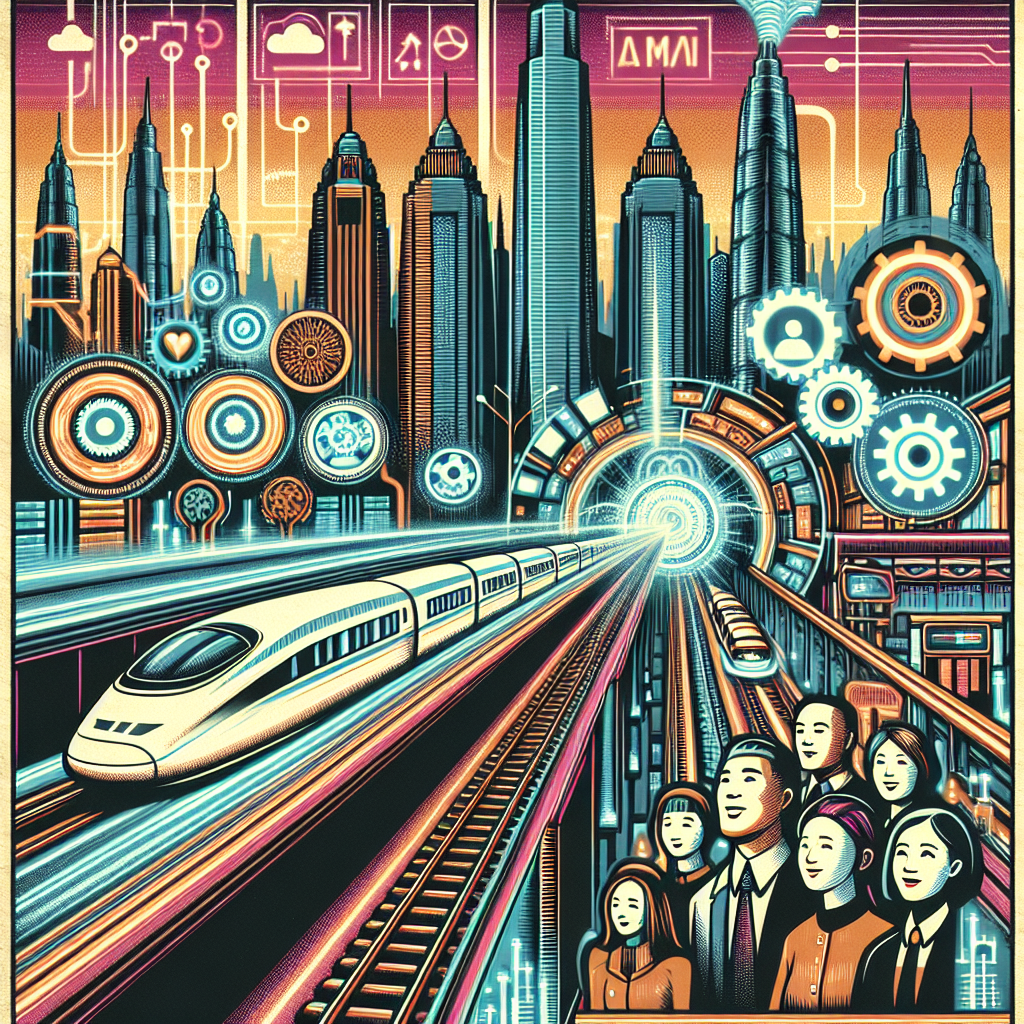Artificial Intelligence (AI) has been revolutionizing various industries, and the transportation sector is no exception. From streamlining operations to enhancing safety measures, AI has been playing a crucial role in improving customer experience in transportation. In this article, we will explore the different ways in which AI is making transportation more efficient, convenient, and enjoyable for passengers.
1. Personalized Travel Experience:
One of the key ways in which AI is enhancing customer experience in transportation is by providing personalized services to passengers. AI algorithms can analyze data such as travel patterns, preferences, and behavior to offer customized recommendations and services. For example, AI can suggest the best route for a passenger based on their preferences, or provide real-time updates on delays and disruptions to help passengers plan their journey more effectively. By personalizing the travel experience, AI helps passengers feel more valued and catered to, leading to higher satisfaction levels.
2. Predictive Maintenance:
AI plays a crucial role in optimizing maintenance schedules for transportation vehicles, which in turn improves the reliability and safety of the service. By analyzing data from sensors and historical maintenance records, AI algorithms can predict when a vehicle is likely to experience a breakdown or require maintenance. This proactive approach to maintenance not only reduces the risk of unexpected disruptions but also minimizes downtime, ensuring that transportation services run smoothly and efficiently. As a result, passengers can enjoy a more reliable and hassle-free travel experience.
3. Real-time Monitoring and Analysis:
AI-powered monitoring systems enable transportation companies to track vehicles, passengers, and infrastructure in real-time, allowing them to respond quickly to any issues or emergencies. For example, AI can monitor traffic patterns, weather conditions, and passenger behavior to optimize routes, improve scheduling, and enhance safety measures. By analyzing vast amounts of data in real-time, AI helps transportation companies make informed decisions that benefit both passengers and operators.
4. Enhanced Safety and Security:
AI technologies such as facial recognition, biometric identification, and predictive analytics are being used to enhance safety and security in transportation. For instance, AI-powered surveillance systems can detect suspicious behavior or potential threats, alerting authorities to take appropriate action. Similarly, AI can analyze passenger data to identify patterns of criminal activity or potential risks, enabling transportation companies to implement preventive measures and improve overall security. By leveraging AI for safety and security, transportation companies can create a more secure environment for passengers, leading to increased trust and confidence in the service.
5. Improved Customer Service:
AI-powered chatbots and virtual assistants are increasingly being used in transportation to provide instant assistance and support to passengers. These intelligent systems can answer queries, provide information on schedules and routes, and help passengers book tickets or make reservations. By automating routine tasks and inquiries, AI chatbots free up human resources to focus on more complex issues, improving overall customer service and satisfaction. Additionally, AI can analyze customer feedback and sentiment to identify areas for improvement and enhance the overall passenger experience.
FAQs:
Q: How does AI improve customer experience in transportation?
A: AI enhances customer experience in transportation by providing personalized services, optimizing maintenance schedules, monitoring vehicles in real-time, enhancing safety and security, and improving customer service through chatbots and virtual assistants.
Q: What role does AI play in predictive maintenance for transportation vehicles?
A: AI analyzes data from sensors and maintenance records to predict when a vehicle is likely to experience a breakdown or require maintenance. This proactive approach to maintenance minimizes downtime and ensures a more reliable service for passengers.
Q: How does AI enhance safety and security in transportation?
A: AI technologies such as facial recognition, biometric identification, and predictive analytics are used to enhance safety and security in transportation. AI-powered surveillance systems can detect suspicious behavior or potential threats, while AI analysis of passenger data helps identify patterns of criminal activity or risks.
Q: How can AI chatbots improve customer service in transportation?
A: AI chatbots and virtual assistants provide instant assistance and support to passengers, answering queries, providing information on schedules and routes, and helping with ticket bookings. By automating routine tasks, AI chatbots free up human resources to focus on more complex issues, improving customer service.
In conclusion, AI is playing a significant role in transforming the transportation industry and enhancing customer experience. From personalized travel services to predictive maintenance and enhanced safety measures, AI technologies are revolutionizing the way passengers travel and interact with transportation services. By leveraging AI to provide more efficient, convenient, and secure transportation options, companies can improve customer satisfaction and loyalty, ultimately driving growth and success in the industry.

